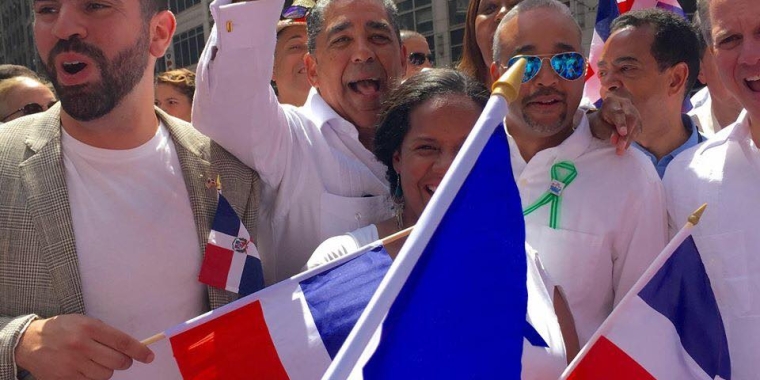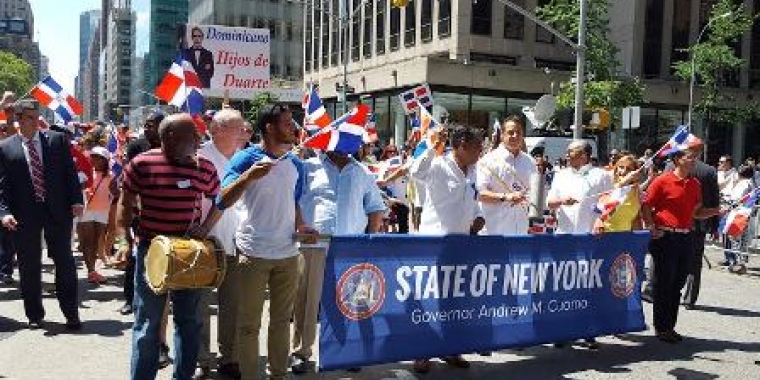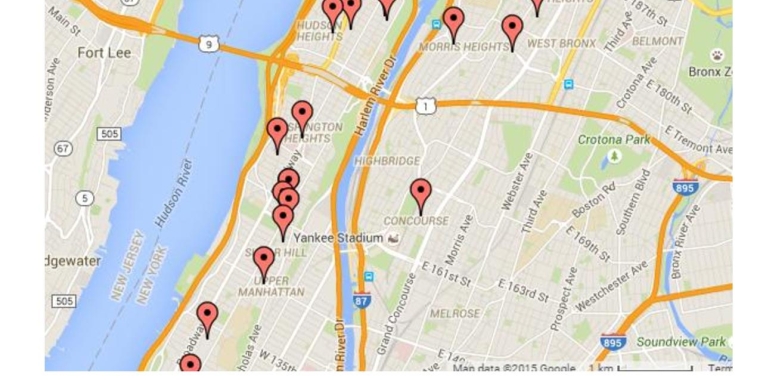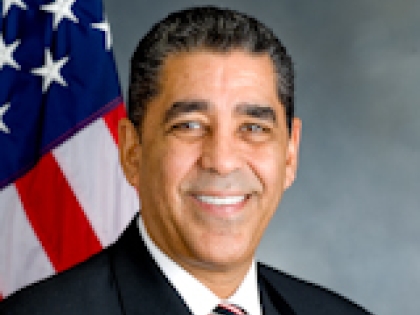
Undocumented immigrants left homeless by uptown fire are ineligible for relocation help from the city
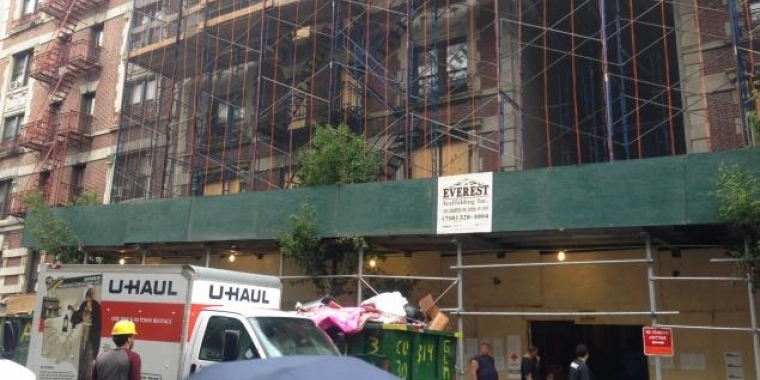
By Albor Ruiz/ NY Daily News
The fire raging just steps from City College was huge and damaging, and took 200 firefighters many long hours to bring it under control. No one died, but it wreaked havoc in the lives of dozens of families.
The tragedy happened a little over a month ago — and it was big news then.
Yet not much has been said about the aftermath of the blaze or the travails of the 200 displaced tenants of 518 W. 139th St. to put their lives back together.
Things were difficult enough for all the victims of the Hamilton Heights fire, but for a particular group of them, the situation was even worse.
And it could remain so for years because most are undocumented immigrants from the Dominican Republic, Mexico and Ecuador.
“There were two types of people displaced, those who were named in the leases to the apartments and those who were not,” said a spokesman for state Sen. Adriano Espaillat, a Democrat who represents Hamilton Heights, and who is involved in helping the tenants.
“Those in the second category — between 100 and 150 people — cannot qualify for help because they did not appear on the leases.”
In other words, although they received some help from the Red Cross, unofficial tenants are ineligible for the city Department of Housing Preservation and Development’s Central Intake Relocation Program, that allows them to stay at one of the city’s three emergency housing centers.
They are also ineligible for the city’s Department of Homeless Services’ facilities, which are offered to displaced legal tenants unwilling to leave their neighborhood.
Espaillat though, is working with HPD to find ways to assist not only the recognized tenants but also those who were living with relatives or renting rooms from legal residents.
“We were there the day of the fire working with the Red Cross and the firefighters to assist the victims,” Espaillat said.
While many of the worries of the lease-signing tenants are being resolved or alleviated, those of the second category, although not less pressing, are more complicated.
What precludes their getting assistance is that they are not on the leases, not their immigration status. Yet, that status ominously looms over every aspect of their lives and, as Espaillat said, makes them fearful of even seeking help.
Concerns like rescuing family pets, having mail delivered or being placed with their families in some HPD facility are being addressed for the lease-signing tenants, but the others have found many doors closed.
“If we had an immigration reform, they would be legalized and would not have to be boarding at other person’s home,” Espaillat said, his voice revealing some frustration.
Yet, the news from the immigration front is not encouraging.
Last Monday, Bob Goodlatte (R-Va.), chairman of the House Judiciary Committee declared he’d do everything he can to ensure the House never takes up the Senate’s comprehensive bill.
He’s ignoring the fact that the path to citizenship has bipartisan support in the GOP-controlled House, but it is the leaders who refuse to bring it to a vote.
What Goodlatte’s decision not to allow the House to even consider creating a path to legal citizenship means for people like the homeless families of Hamilton Heights is intolerable.
The powerful congressman wants in fact to bar them from ever being able to do something as simple as putting their own names on an apartment lease, permanently consigning them — and 11 million undocumented people in the U.S. — to second-rate status.
Goodlatte and other GOP leaders may have a death wish, because their cruelty would not go unpunished. As America’s Voice has pointed out, polls show Latino voters would blame Republicans at reelection time for blocking meaningful reform.
And without them, the GOP can kiss the White House goodbye for the foreseeable future.
